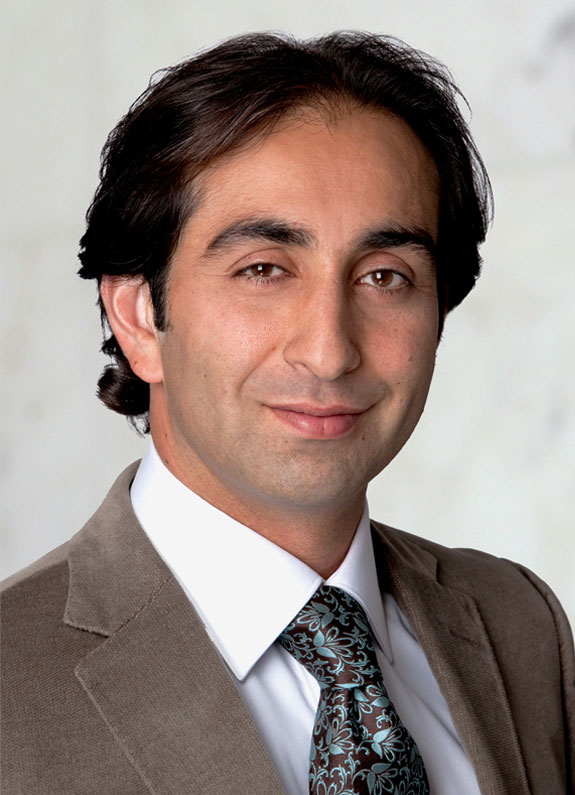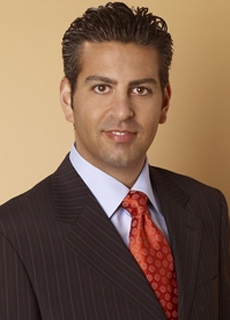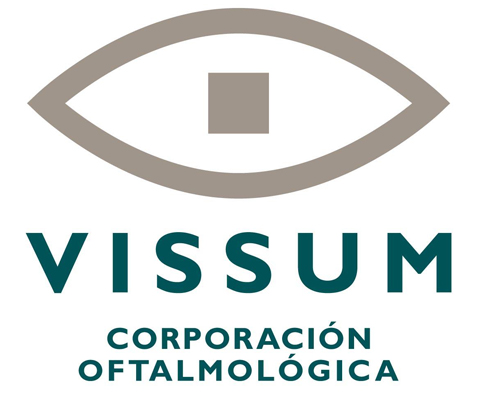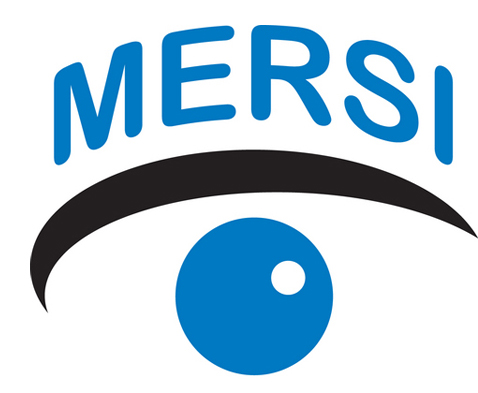REQUEST AN APPOINTMENT
TESTIMONIALS
Corneal Cross Linking
Corneal cross-linking is a procedure performed by an ophthalmologist to treat ocular conditions where the cornea becomes weakened or starts to degenerate. One of the most common issues that corneal cross-linking is used to treat is keratoconus, is a degenerative disorder that causes structural changes to the shape of the cornea. In a healthy cornea, the epithelial tissue has a natural gradual curve. In an eye affected by keratoconus, however, the cornea becomes thinner and takes on a more pronounced conical shape.
Early symptoms of keratoconus often mirror those of common refractive eye conditions, like myopia, hyperopia, or astigmatism. Patients suffering from keratoconus often complain of the following symptoms:
- Distorted vision
- Multiple images
- Streaking
- Sensitivity to light
Keratoconus is most often diagnosed during a patient’s adolescent years, and in cases where both eyes are affected, visual impairment can be severe enough to impede the ability to drive or read normal-sized print. If keratoconus if identified in its early stages, an ophthalmologist can prescribe corrective lenses to allow for patients to continue driving and engaging in normal activities. However, once the condition progresses and visual acuity begins to deteriorate further, surgery may be necessary to repair the corneas.
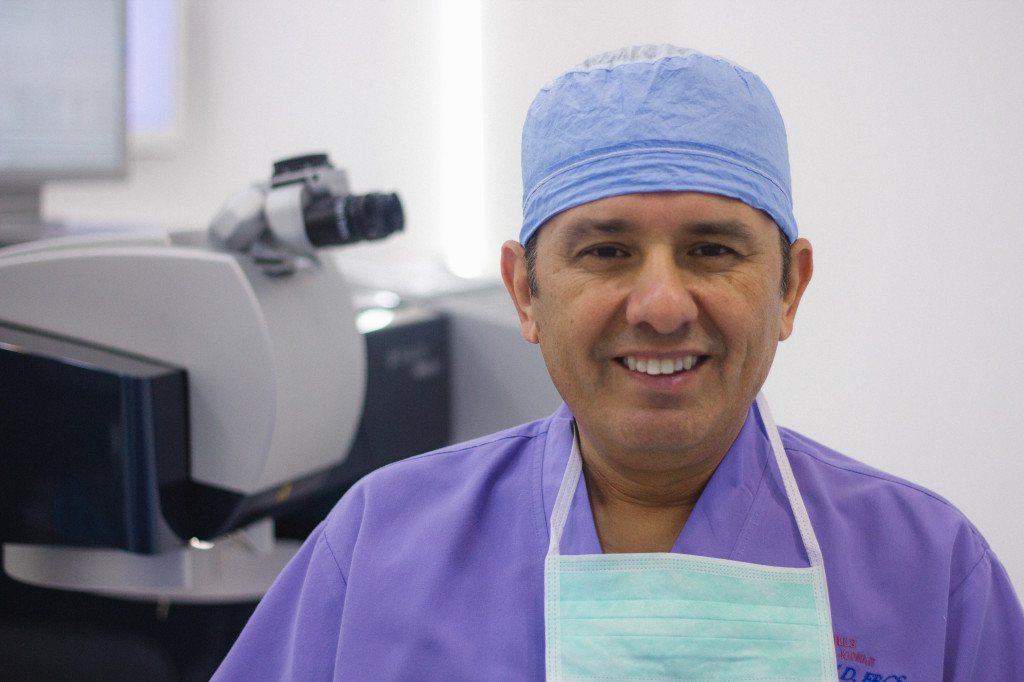
Corneal Cross Linking Procedure
Corneal cross linking is a procedure that shows promising results when dealing with certain ocular issues. Also known as corneal collagen cross linking (CXL), the procedure was developed in 1998 by Theo Seiler, MD. The purpose of the procedure is to strengthen the cornea, and so patients suffering from thinning or degenerating corneas (as in cases of keratoconus) stand to benefit most from the emerging technology.
How Does Corneal Cross Linking Work?
The way corneal cross linking works is by applying riboflavin, a form of vitamin B2, to the corneas, followed by a dose of ultraviolet A (UV-A) light. There are two versions of the procedure:
Epithelium Off
In this version, the thin layer of tissue covering the eye is removed to allow for faster and enhanced penetration of the riboflavin treatment.
Epithelium On
In the version where the epithelium is not removed, also known as transepithelial corneal cross linking, the riboflavin is applied over the epithelial tissue and requires longer saturation time.
Because of the promising results, corneal cross linking has proven to be an effective means to strengthen weak or damaged corneas. The procedures also has treatment potential for other ocular conditions, such as pellucid marginal degeneration and ectasia, which can sometimes occur after Femto-LASIK.
Corneal cross linking also has the potential to work in conjunction with other treatments to strengthen the corneas and accelerate healing time and recovery.
Are You A Candidate For Corneal Cross Linking?
Already approved and widely used in Europe, surgeons have so far yielded the best results when treating keratoconus, ectasia, and pellucid marginal degeneration, conditions where damage to the cornea eventually leads to diminished visual acuity or severely impaired vision. Many patients who have received corneal cross linking have enjoyed corneal stability (where their condition did not continue to deteriorate further after the procedure) or actual improvement. The goal is to identify and treat the condition in the early stages, before severe degeneration and visual impairment sets in.
Further potential applications for corneal cross linking include:
- Treatment for corneal ulcers unresponsive to topical antibiotics
- Corneal infections
- Corneal instability and vision fluctuation in patients that have previously undergone a radial keratotomy procedure
To determine whether a patient is a candidate for corneal cross linking, an ophthalmologist will first perform a regular eye exam, as well as measure the thickness of the patient’s cornea. A corneal topography (mapping of the cornea) will also be performed to determine the extent and severity of the patient’s condition.
Corneal cross linking generally takes between 60 – 90 minutes, after which a protective contact lens may be applied and topical antibiotics and anti-inflammatory drops are prescribed.
So far, surgeons are reporting corneal stability or actual improvement in 99 percent of patients.
Contact an Expert Ophthalmologist Today!
Want to learn more about corneal cross linking or general eye health? Contact an expert ophthalmologist at Beverly Hills Medical Center Kuwait today! Call +(965)-222-89999 or schedule an appointment online.
Next, read about cataract surgery.


